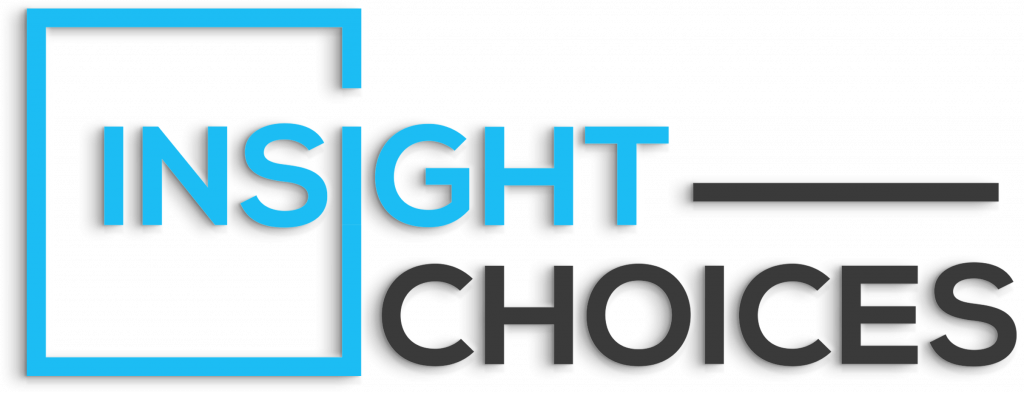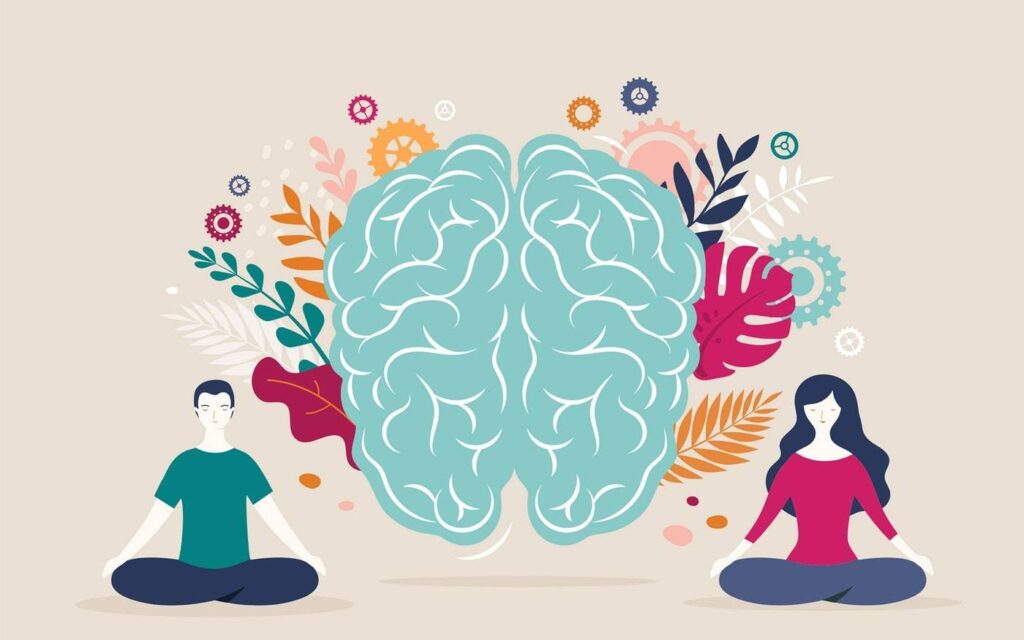In many AAPI (Asian American and Pacific Islander) communities, strength is quiet. It’s the unspoken endurance of immigrant parents who left everything behind. It’s the stoic smiles of elders who rarely speak of loss, even though they carry so much of it. And it’s the inner storm of younger generations, torn between honoring their family’s sacrifice and facing emotional struggles they were taught to keep buried.
Here’s the truth: strength doesn’t have to mean silence.
Mental wellness doesn’t mean choosing between your heritage and your healing. True healing happens when we stop seeing tradition and therapy as opposing forces and start weaving them together. It’s not about rejecting our roots. It’s about reimagining what they can grow into.
Insight Choices believes in compassionate, culturally informed care that honors. Where you come from supports where you go. Whether you’ve never spoken a word about your mental health or have been silently searching for the right kind of support, we’re here to meet you where you are.
The Unspoken Struggles: Understanding Stigma in AAPI Mental Health
In many AAPI households, mental health is a taboo topic. You may have heard: “Be strong.”, “Don’t bring shame to the family.”, “Other people have it worse.”
In these cultures, emotional restraint is often mistaken for resilience. Speaking up about sadness, anxiety, or trauma can be seen not just as a weakness, but as a betrayal of:
- Family values
- Cultural pride
- Everything our parents or grandparents fought to give us.
The pressure to “save face” means struggles stay hidden behind:
- Perfect grades
- Prestigious careers
- Polite smiles
And it’s not just emotional pressure. Many AAPI individuals face systemic barriers that make seeking help even harder. There’s a severe shortage of therapists who understand the nuances of AAPI identity. Language gaps, fear of being misunderstood, or not knowing how therapy works can shut the door before it’s even opened.
According to the National Alliance on Mental Illness (NAMI), AAPI individuals are three times less likely than white Americans to seek mental health services. That number isn’t just a statistic. It reflects generations of silence.
Generational Trauma: Carrying What Isn’t Ours
The pain you feel may not be just your own. Generational trauma is real, and often, it’s invisible.
Trauma doesn’t disappear. It gets passed down in:
- How families communicate (or don’t)
- In the values we’re taught
- How we respond to stress
- How our bodies react to fear or shame
Generational trauma in Asian American families has roots in immigration journeys, war, colonization, political instability, or racism. Our ancestors survived by staying silent, by bearing, not necessarily by processing their pain.
In Cambodian families, silence often follows the scars of the Khmer Rouge. In Vietnamese households, stories of war are replaced with hard work and high expectations. In Japanese American families, the legacy of internment camps lives on in perfectionism and restraint. Chinese, Filipino, Indian, Samoan — across every community, the details differ, but the pattern repeats.
Younger generations are caught in a quiet tug-of-war. They carry the weight of family pride and survival and the desire for emotional freedom. They’re told to be grateful but also feel deeply lonely. They want to honor their elders, but also want space to name what hurts.
Here’s the thing: healing generational trauma in Asian American families doesn’t mean blaming the past. It means honoring it. And choosing not to let it define the future. You can be proud of your origins and say, “This pattern stops with me.”
Tradition as a Tool: Bridging Eastern and Western Approaches
What if the answer to healing isn’t either/or — but both/and?
There’s a common myth that Western therapy conflicts with Eastern traditions. But the truth is, many AAPI cultural practices already hold powerful mental health tools. We just haven’t always named them that way.
- Mindfulness and meditation are rooted in Buddhist, Hindu, and Taoist philosophy. They teach us to be present with our emotions, not fear them.
- Acupuncture isn’t just for physical pain. It helps regulate the nervous system, easing anxiety and insomnia.
- Herbal remedies like ashwagandha, ginseng, and chrysanthemum tea. They have long been used to calm the mind and body.
- Movement-based practices like Tai Chi, Qigong, and Yoga reconnect us to the body. It gently releases trauma, stress, and stored tension.
These practices center balance, energy flow, and harmony. So does good therapy.
Insight Choices recognizes that culture is not a barrier. It’s a bridge. Our clinicians are trained to integrate:
- Somatic tools
- Guided mindfulness
- Breathwork
We don’t ask you to abandon your traditions. We ask how they can support you.
Healing isn’t about trading tea for pills or yoga for talk therapy. It’s about creating a personalized path that feels safe, sacred, and sustainable and honors your roots while nurturing your growth.
AAPI Voices Leading the Movement
Change is happening, and AAPI voices are leading it.
From licensed therapists to grassroots organizers. AAPI leaders are reshaping the mental health conversation. Many Instagram accounts provide relatable content, therapist directories, and stories that break mental health stigma in Asian communities in real-time. Podcasts offer powerful interviews and reflections from those walking this healing path. It is essential to break the stigma in minority communities.
There are now growing numbers of AAPI-identifying therapists who speak the languages of both our cultures and our emotions. Their presence alone helps dismantle the old belief that therapy is “not for us.” They understand what it means to feel like a cultural in-between, not quite one thing or the other. They guide with empathy and skill.
Insight Choices is proud to stand with these voices. We match clients with clinicians who come from or understand AAPI backgrounds. Our team values culturally responsive care, open communication, and an intake process that respects personal and cultural boundaries.
Because when you see yourself in your therapist, something shifts. You feel safer and more understood, as if this healing is possible.
Accessing Help: A Guide for AAPI Individuals
Maybe you’ve been thinking about therapy, but it doesn’t feel very safe.
- What if it’s awkward?
- What if you cry?
- What if your family finds out?
Let’s break it down.
Your first therapy session won’t be a deep dive into your childhood unless you want it to be. Usually, it’s a conversation, a chance to share:
- Why did you come?
- What are you hoping for?
- How does the process work?
You’re in control.
You don’t need to be in crisis to ask for help. Some of the best therapy happens when you’re doing “okay.” But want to understand yourself better or prevent burnout. Therapy can be short-term and solution-focused or long-term and exploratory. It’s flexible.
Worried your therapist won’t get your culture? That’s valid. That’s why culturally competent providers matter. Insight Choices asks about your preferences from the beginning.
Want someone who speaks your native language? We’ll try to find that. Want a therapist who understands the role of religion, family pressure, or gender expectations in your life? You deserve that.
Still not sure where to start? Here are a few mental health resources for AAPI that get it:
- Insight Choices: Compassionate, culturally aware mental health support tailored to you.
- Asian Mental Health Project: Offers education, community events, and therapist directories. It helps to overcome mental health taboos in Asian culture.
- National Queer and Trans Therapists of Color Network: A vital space for LGBTQ+ AAPI support.
- Inclusive Therapists: A directory prioritizing providers with cultural humility.
- Language-specific helplines: For Mandarin, Tagalog, Hindi, Vietnamese, and more.
Taking the first step might feel scary. But that step could lead you to peace you didn’t think was possible.
Conclusion: Redefining Strength Through Vulnerability
Strength has never been about silence. It’s about truth. About allowing yourself to be seen, even when it feels uncomfortable. It’s about choosing to
- Feel
- Speak
- Ask for help
Even when generations before you couldn’t.
When AAPI individuals speak up, when we name our needs, tend to our wounds, and rewrite old stories. We don’t dishonor our families. We honor them by healing what they couldn’t. We carry their resilience forward, but this time, with gentleness. With intention. With the freedom to be whole.
You don’t have to make this journey alone. Healing doesn’t happen all at once. It starts with a single act of courage.
- Start small.
- Write in a journal.
- Light incense and breathe.
- Talk to someone you trust.
- Book one therapy session.
Just one. Let that be enough for now. Let that be the beginning.
Because healing isn’t a destination. It’s a practice. A reclaiming. A quiet revolution that ripples through generations.
Insight Choices is here for every part of that process. Whether you’re navigating grief, anxiety, cultural identity, or simply the weight of being human, our care is rooted in empathy, guided by respect, and always shaped by you.
You are not broken. You are becoming. And we’re honored to walk with you.
FAQs
1. What are some signs I might benefit from therapy, even if I don’t feel ‘sick’?
- Feeling constantly overwhelmed, irritable, or “stuck” in thoughts/patterns
- Struggling with relationships, life transitions, or self-worth
- Wanting deeper self-understanding or emotional tools
Therapy isn’t just for crisis—it’s for growth, too.
2. Can I combine traditional healing with therapy? Will my therapist understand?
Yes. Many therapists integrate cultural/spiritual practices if you want. Look for providers who list “culturally sensitive,” “integrative,” or “holistic” approaches. Ask directly: “Do you honor traditional healing alongside therapy?”
3. How do I talk to my family about therapy if they don’t believe in it?
Frame it your way:
- “It’s like a coach for my mind—helps me handle stress better.”
- “I’m doing this to be stronger for our family.”
Set boundaries: “I respect your view, but I must try this for myself.”
4. Are there therapists who speak my language or share my cultural background?
Yes. Use directories like:
- Therapy for Latinx
- Inclusive Therapists
- Asian American Mental Health Collective
Ask clinics: “Do you have providers from different communities?”
5. I’ve never been to therapy before. What should I expect?
- First sessions = questions (your history, goals). No “right” answers.
- It’s collaborative—you set the pace. Try 2-3 sessions to see if it clicks.
- Normal to feel awkward! A good therapist will help you feel safe.

Dr. Chang is a highly respected psychiatrist with extensive experience serving patients in the greater Los Angeles area. With a distinguished background in psychiatry, he has dedicated his career to advancing mental health care through both clinical practice and academic contributions.

